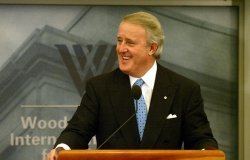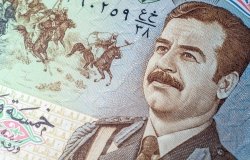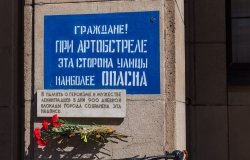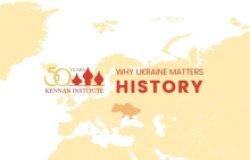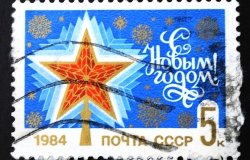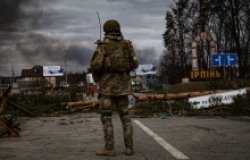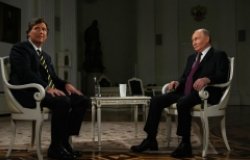Book Discussion: <i>Citizens in the Making in Post-Soviet States</i>
The political outlook of young people in the countries of the former Soviet Union is crucial to their countries’ future political development. This is particularly relevant now as the first generation without firsthand experience of communism at first hand is approaching adulthood. Based on extensive original research and including new survey research amongst young people, this book examines young people’s political outlook in countries of the former Soviet Union; it compares and contrasts Russia, where authoritarianism has begun to reassert itself, and Ukraine, which experienced a democratic breakthrough in the aftermath of the Orange Revolution.
Overview
“The linkage between youth and politics provides a window into political and cultural developments in Russian and Ukrainian societies,” said Olena Nikolayenko, Assistant Professor, Department of Political Science, Fordham University. At an 11 October 2011 Kennan Institute event, the speaker discussed her recent book about political attitudes of adolescents in three Russian and three Ukrainian cities. A distinguishing attribute of these adolescents is that they were born in the early 1990s and did not have any direct experience with the communist regime.
Nikolayenko explained that her research was conducted in 2005, when she administered questionnaires to approximately 300 high-school-age students in each city. Each locality, Nikolayenko explained, possessed a different political environment in which the students lived. In Russia, Nikolayenko chose to conduct surveys in Moscow, Tula, and Rostov-on-Don; she chose Moscow because the capital city is considered as the hub of political action and economic activities, with one of the most liberal and educated population in the country. Tula, according to the speaker, was chosen because the city contains a “hotbed of supporters of the Communist Party,” and was a part of the so-called “Red Belt” in the Russian Federation in the 1990s. Finally, Nikolayenko selected the city of Rostov-on-Don—Russia’s “gate to the Caucasus,” according to the speaker—because of its Cossack history, as well as its geographical proximity to the Russian-Ukrainian border.
In Ukraine, Nikolayenko chose to survey adolescents in the cities of Kyiv, Lviv, and Donetsk; Kyiv was selected for the study due to its political and economic significance as the capital city. Located 45 miles from the Polish border, Lviv was selected because it is “traditionally considered the beacon of Ukraine’s nationalism.” The third city surveyed was Donetsk, which is located in eastern Ukraine and where the majority of the population prefers to speak Russian. “These cultural differences often translate into political differences,” Nikolayenko observed, adding that she was particularly intrigued by these cities to see how adolescents perceive politics—and, more broadly, how they interpret Soviet history.
Nikolayenko emphasized that the political attitudes of post-Soviet adolescents varied between cities in part due to differences in the local social context. For example, when adolescents in the Russian cities were asked how proud they were to be citizens of the Russian Federation, their attitudes were consistently positive throughout Moscow, Tula, and Rostov-on-Don. However, Ukrainian adolescents’ answers varied based on the city in which the interviewees lived. There was a stark difference in the levels of national pride among the students in Lviv and Donetsk; while high school students in Lviv had notably high levels of national pride, young people in Donetsk displayed much less pride in Ukrainian citizenship.
With respect to adolescents’ attitudes toward the dissolution of the Soviet Union, Nikolayenko cited that approximately two-thirds of the surveyed Russian students disapproved of the collapse of the USSR. In Ukraine, however, results varied based on the city. In Lviv, for example, nearly all students approved of the collapse of the Soviet Union—and embraced the fact that they could speak Ukrainian freely now. The majority of adolescents in Donetsk, on the other hand, strongly disapproved of the dissolution of the USSR.
“Of course,” Nikolayenko continued, “another important question is: Where do these differences come from? And how can we explain them?” The attitudinal differences between the cities and countries overall could be attributed partly to the patriotic education systems in Russia and Ukraine. The broad aim of patriotic education, she explained, is to cultivate a love for one’s country and the commitment to act upon it. Over the past decade, the Russian government demonstrated more commitment to the promotion of patriotic education than the ruling elite in Ukraine. The content of patriotic education is hotly contested in Ukraine, hampering the adoption of a coherent and widely accepted policy on this matter. In particular, Nikolayenko discussed how the framing of Soviet history differs in Russian and Ukrainian textbooks.
History teaching provides a lens through which adolescents interpret current events, the speaker asserted. “To conclude, I think some of the policy implications of this research are that it is necessary to promote a cross-country dialogue among youth in the post-Soviet states.” In the case of Ukraine, there need to be more opportunities for a meaningful interaction between youth from different parts of the country, so that they can discuss their political differences and find some common ground to build an independent Ukraine together.
By Amy Shannon Liedy
Blair Ruble, Director, Kennan Institute
The Kennan Institute speaker series is made possible through the generous support of the Title VIII Program of the U.S. Department of State.
Documents & Downloads
Speaker
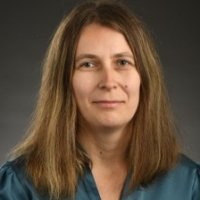
Olena Nikolayenko
Hosted By

Kennan Institute
The Kennan Institute is the premier US center for advanced research on Russia and Eurasia and the oldest and largest regional program at the Woodrow Wilson International Center for Scholars. The Kennan Institute is committed to improving American understanding of Russia, Ukraine, Central Asia, the Caucasus, and the surrounding region though research and exchange. Read more
Thank you for your interest in this event. Please send any feedback or questions to our Events staff.



